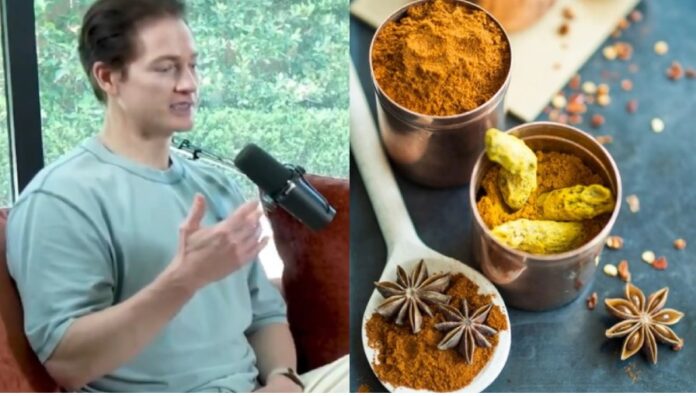Renowned tech entrepreneur and longevity enthusiast Bryan Johnson, best known for his Blueprint protocol to slow aging, has introduced Indian spices into his strict dietary regimen. Johnson, who has spent millions optimizing his body to function at peak efficiency, now acknowledges the health benefits of traditional Indian spices like turmeric, cumin, and ashwagandha. His latest experiment underscores the growing intersection of ancient wellness practices and modern biohacking.
Bryan Johnson’s Approach to Longevity
Bryan Johnson, the founder of Kernel and Braintree, has dedicated his life to reversing the effects of aging through his Blueprint protocol. His meticulously designed routine involves consuming precise amounts of nutrients, undergoing regular medical tests, and following cutting-edge scientific advancements. Every element in his diet and lifestyle is backed by extensive research, with the goal of optimizing longevity at a cellular level.
Why Indian Spices?
Indian spices have been used for centuries in Ayurveda and traditional medicine due to their powerful medicinal properties. Their antioxidant, anti-inflammatory, and metabolic benefits align with Johnson’s goal of achieving peak biological performance. Here’s why these spices are making their way into his longevity diet:
- Turmeric (Curcumin) – Known for its potent anti-inflammatory and antioxidant properties, turmeric is widely used in Ayurveda for boosting immunity and reducing inflammation. Curcumin, its active compound, has been studied extensively for its role in combating aging and chronic diseases.
- Cumin – This spice aids digestion, improves metabolism, and has antibacterial properties. Cumin is rich in iron and has been linked to weight loss and better blood sugar control.
- Ashwagandha – An adaptogenic herb, ashwagandha is known for reducing stress, improving cognitive function, and balancing hormones. It aligns with Johnson’s focus on stress reduction and mental clarity in his longevity pursuit.
- Black Pepper (Piperine) – Often combined with turmeric, black pepper enhances curcumin absorption by up to 2000%, making it a crucial addition to Johnson’s spice intake. It also supports gut health and has anti-inflammatory properties.
- Cardamom – This spice helps in detoxification and improving cardiovascular health, making it a valuable component in any longevity-focused diet.
Integrating Indian Spices into a Longevity Diet
Johnson’s adoption of Indian spices signifies a shift toward natural biohacking methods that complement his existing high-tech interventions. He is reportedly incorporating these spices into his daily meals through plant-based smoothies, herbal teas, and carefully curated recipes that align with his Blueprint dietary principles.
Moreover, his interest in Ayurveda and holistic healing demonstrates how modern health optimizers are increasingly looking at ancient remedies for longevity and disease prevention.
Global Influence on Modern Biohacking
Bryan Johnson’s decision to integrate Indian spices into his lifestyle highlights the increasing role of global influences in biohacking. While Western medicine primarily focuses on clinical interventions, Indian traditional medicine emphasizes preventive health through natural ingredients. By merging these approaches, Johnson exemplifies how science and tradition can coexist to optimize health.
Conclusion
Bryan Johnson’s health journey continues to evolve as he experiments with new methods to enhance longevity. His embrace of Indian spices is a testament to the power of ancient wellness practices in modern health optimization. As more biohackers and longevity researchers explore holistic and natural remedies, Indian spices may gain even greater prominence in global longevity discussions.
His latest dietary experiment could pave the way for a more integrated approach to health—one that combines scientific rigor with the wisdom of traditional healing practices.



















































